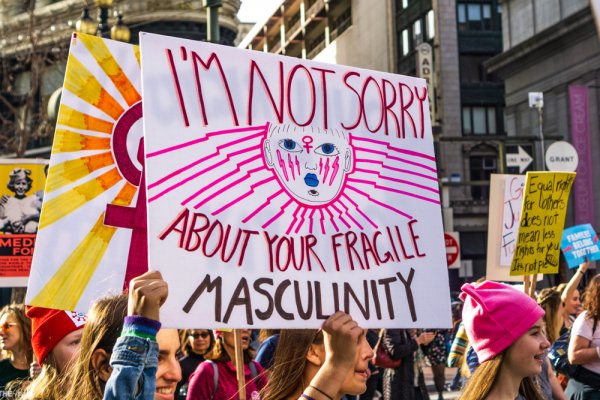It’s a bit of a shock when normally sober voices such as those of academic Carol Johnson and the Sydney Morning Herald political editor Peter Hartcher start using the term ‘authoritarian’ about Australia.
We see our nation as balanced and fair, with an anti-authoritarian ethos – thanks to war story legacies and legendary diggers famed for an Aussie spirit driven by laconic humour and a healthy cynicism around power and those who wield it.
So are we really losing this? And if we mindlessly follow the paths of those increasingly vocal ‘strongmen’ leaders currently ruling other nations, from Orban’s Hungary to Trump’s America and Britain’s Boris, are we likely to suffer a similar fate of becoming a ‘softer’ version of an authoritarian state here in Australia?
The testiness of recent public debates … has highlighted how easy it is to deploy the language of division
The testiness of recent public debates, particularly around climate change and bushfires, has highlighted how easy it is to deploy the language of division. And whilst Prime Minister Scott Morrison has recently sought to lower the intensity of the fractious debate, he has not been without clear and strategic skill in stoking anger. His speeches on laws to stop legal protest, and even lawful investing, would be remarkable in any other political times. Such would be the heavy handedness of a command state.
Not to mention his constant refrain: “Whose side are you on?”, which naturally posits two opposing camps.
This is in stark contrast to his political hero, John Howard, who – for all his capacity for wedge politics – was firm in his often stated belief that there is “more that unites us than divides”.
Well, apparently no more.

Anger is a bit like climate change
It’s become a bit of a lazy trope to say that the rise of feminism had led to an emasculation of men’s traditional roles and rendered males somehow weakened and vulnerable.
Nevertheless, there are an increasing number of young men who not only believe this, but who self-identify with this kind of ‘victimhood’.
The tragic irony of course is the opposite. Rigid masculinity is a health hazard, and as we experience a state of flux it’s easier to attack the apparent problem – feminism and women seeking equality – rather than the deep structural constant of patriarchy, which is the ultimate determinator of power in society, not just of power between the sexes but also power within male hierarchies.
Dr David Duriesmith argues that masculinity and its structures pose the greatest threat to men and their mental and physical health:
“Changing gender norms have been traumatic for many men and resulted in a profound sense of loss among many”, he says. “The structural conditions around work, marriage and politics are all shifting in ways that weaken men’s dominance.”
“Work in the United States has suggested that these shifts have left many young men feeling like they exist in a state of limbo. Due to increased casualisation and a breakdown of manufacturing in the Global North, young men often feel that they cannot transition into a stereotypical form of adult manhood.”
We need to pay heed to those words. As Australia’s economy has dramatically reformed over the last four decades these forces apply here, and with even more force since the Global Financial Crisis.
… anger is a bit like the long run impacts of climate change: the environment gets gradually more and more prone to extreme results, although at the time it may appear there’s little to be seen
In this light, it’s possible to see men as victims – rather than perpetrators – of patriarchy. For much like the feudal strata – and postmodern capitalism seems ever more returning to its feudal roots in all but name, given the enormous disparities in wealth where 26 people control 50% of the world’s wealth – at no stage is a unemployed or underemployed male on the same level as one of the Koch brothers: despite some similarities in anatomy.
In that sense anger is a bit like the long run impacts of climate change: the environment gets gradually more and more prone to extreme results, although at the time it may appear there’s little to be seen.

Breeding cohorts of anger: The rise of the incels and the alt-right
The internet has created a space for autodidacts, but also spaces for cult-like self-indoctrination. Is there really much difference between a terrorist training to join ISIS or a white supremacist group in Australia wanting to set up white enclaves, to so called incels who join chat rooms to share endless grievances about their lack of potency?
In rudimentary terms they are all screaming out their powerlessness in ever more angry language.
But deeds first arise out of ideas and sharing increasingly extreme language.
It may be perverse, but the term ‘incel’ first was coined by a Canadian woman in the 90s, a portmanteau to reflect “involuntarily celibate”.
The term first appeared on obscure chat rooms for the shy or socially awkward. Sometime in the early 2000’s it metastasised to become a rallying call for males who felt rejected by women and blamed women for their isolation. A Reddit forum later became a particularly active incel community, a place where men blamed women for their “involuntary celibacy”, advocating misogyny, violence and rape.
What followed were a spate of shootings and murders, most infamously the mass killings by Elliot Rodgers, who shot six people dead, wounded 14 others and then killed himself. Rodgers identified as an incel. For some he is known as a ‘saint’ and there are even memes with his face superimposed on images of Christ.
No wonder The Handmaid’s Tale seems more documentary than drama.

Today, incels are being cultivated by white supremacists and members of the alt-right, as foot soldiers to their cause.
From terminology such as ‘black pills’ (referring to women as irredeemably cruel, shallow and egocentric), through to incels who have twisted the Pareto principle to justify their view that 80% of women go out with the top 20% of men, we are talking about a psychology of mass delusion, self-hate and fear.
Before getting too lost down this rabbit hole, some sobering words from the New York Times: involuntary celibacy is an adaptation of the idea of male supremacy. The Southern Poverty Law Center (SPLC) describes the subculture as “part of the online male supremacist ecosystem”, which they began including in their list of hate groups in 2018. The New York Times wrote that “the group has evolved into a male supremacist movement made up of people—some celibate, some not—who believe that women should be treated as sexual objects with few rights”.
No wonder The Handmaid’s Tale seems more documentary than drama.
That said, however, incels are more likely to be victims of patriarchy than feminism. The question is, how do we engage with this group so they are not abandoned to more sinister forces?
Or is that as naive as believing we need civil society?
Conclusion
Powerlessness and fear are a dangerous mix.
Politicians are adept in the language of power, fear and grievance, and some are masterful at using such language to corral votes and public support. Authoritarian figures by definition use hierarchy to create a perception of security – on their terms.
Powerlessness and fear are a dangerous mix
As the commentator Cas Mudde observes in his new book The Far Right Today, no country is immune to far right politics, with its form shapeshifting easily between populism, authoritarianism and nativism. Australia has no guaranteed immunity from these forces.
Ultimately men don’t need patriarchy to gain any genuine sense of potency. This is why it is more urgent than ever to kick start public discussion about healthy masculinity, while also unpacking its corollary – toxic masculinity.
The very existence of our civil society and democracy may well depend on it.




